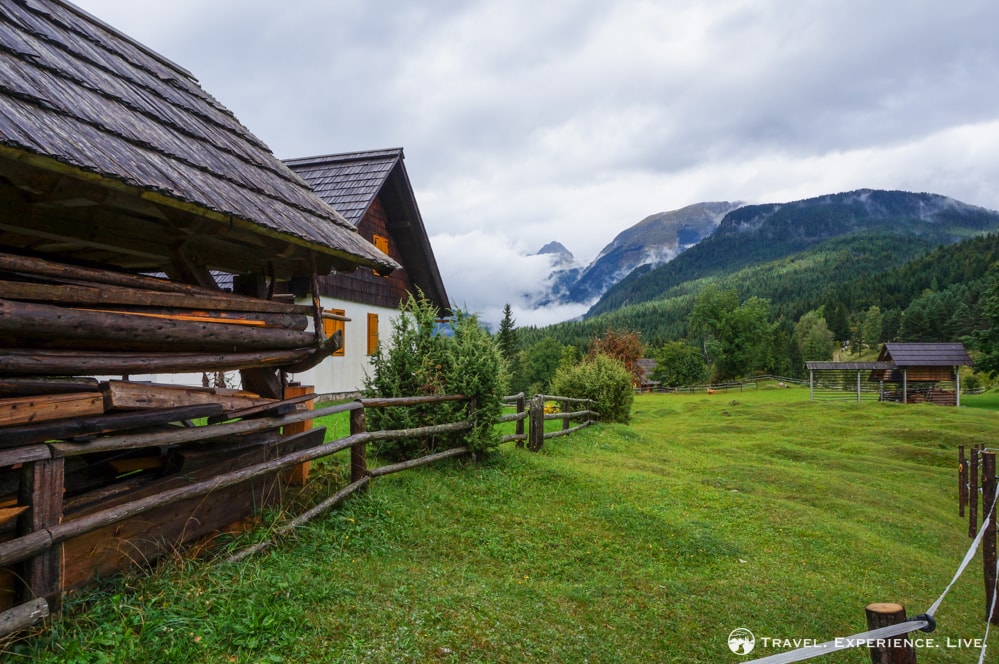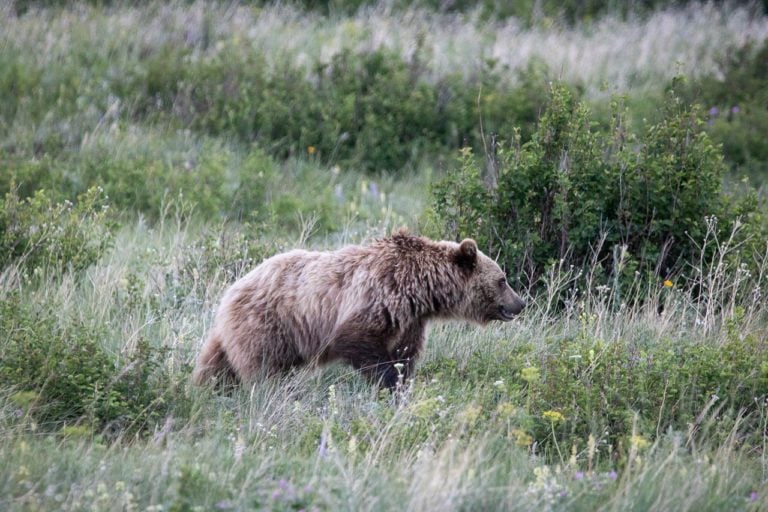7 Sensational Panoramic Views on Going-to-the-Sun Road (Glacier National Park)
Driving the Going-to-the-Sun Road (GTTSR) in Glacier National Park is easily one of the greatest national park experiences in the United States.
This high-elevation mountain road cuts through the heart of the park, passing by numerous trailheads and epic viewpoints, attracting thousands of visitors every day in summer.
In this post, I’ll focus on what I think are the absolute best panoramic views on the Going-to-the-Sun Road.
These are the viewpoints I consider “must see” and I’d strongly recommend that you don’t skip them. All of these Going-to-the-Sun Road views are nothing less than awe-inspiring.
Note that there are many other places to visit along the road, though, from hikes to wildlife viewing areas. You can find those in my Going-to-the-Sun Road highlights guide here.
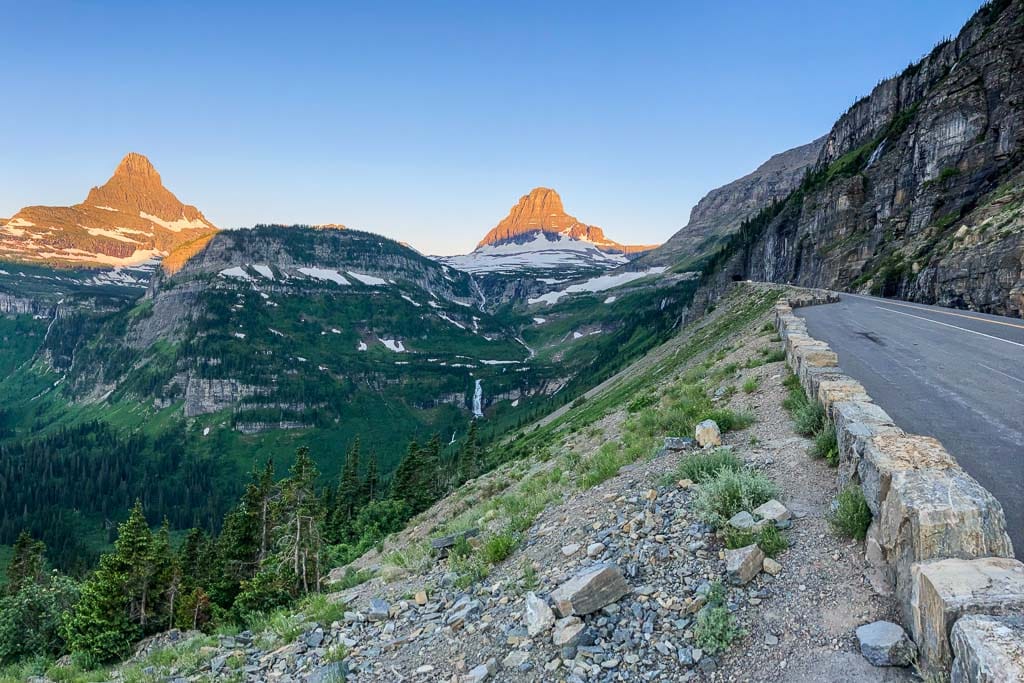
This blog post about the best panoramic views on the Going-to-the-Sun Road contains affiliate links. You can read more about our Terms of Use / Disclosure here.
Going-to-the-Sun Road FAQs
Before we get to the best panoramic views on the Going-to-the-Sun Road, let’s answer some common questions about this popular road.
When Is the Going-to-the-Sun Road Open?
Because of its high elevation and snowy conditions, the Going-to-the-Sun Road is closed most of the year. There’s no predetermined date that it opens.
Opening dates depend on snowpack and plowing progress.
Due to heavy snowfall and frequent late-spring avalanches, this is one of the most difficult roads to plow and keep clear in North America. It’s not unusual for plowing to take more than ten weeks.
Generally speaking, though, the road opens sometime in late-June or early-July. It typically closes to vehicles in mid-October.
To get a better idea of when the Going-to-the-Sun Road opens, you can see historic opening and closing dates of the GTTSR on this page on the park’s website.
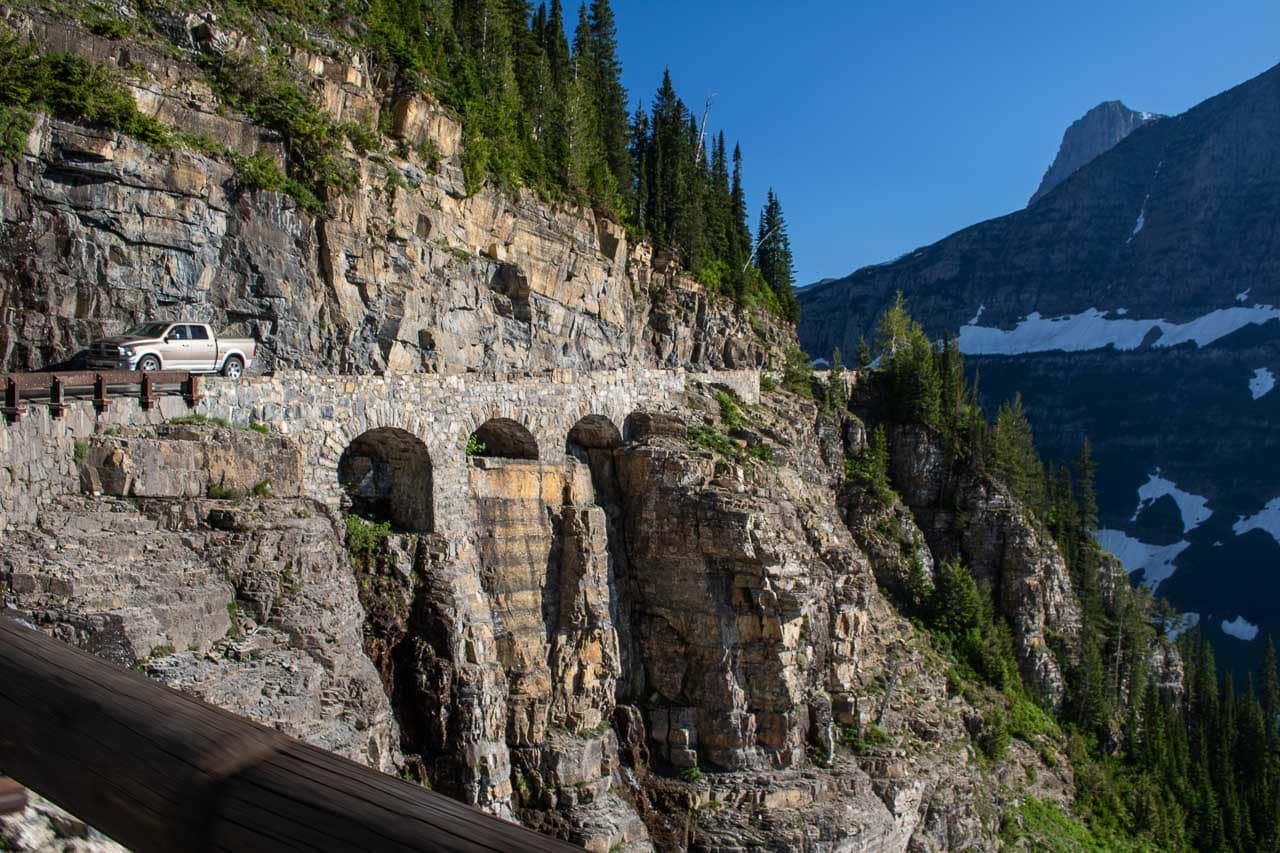
How Long Is the Going-to-the-Sun Road?
The Going-to-the-Sun Road is exactly 50 miles long. Its highest point is Logan Pass (6,646 feet), located in the heart of the park.
Logan Pass is 32 miles from the west entrance in West Glacier and 18 miles from the east entrance in St. Mary.
Where Can You Stay on the Going-to-the-Sun Road?
Lodging on the Going-to-the-Sun Road is available on its lower-elevation sections, both in the west and east.
There is no Glacier National Park accommodation on the alpine portion of the road.
- Village Inn at Apgar and Apgar Village Lodge
- Lake McDonald Lodge and Motel Lake McDonald
- Rising Sun Motor Inn & Cabins
- St. Mary Village (just steps outside the park boundary in St. Mary)
In addition to a few nights at the Village Inn at Apgar and the Many Glacier Campground, I spent four nights in one of the Tiny Homes at St. Mary Village.
I highly recommend staying there for easy access to the many eastern Going-to-the-Sun Road highlights. It’s also closer to Logan Pass than the accommodation on the west side.
This would also be a great location for day trips to Many Glacier, in case you weren’t able to reserve a room or campsite there.
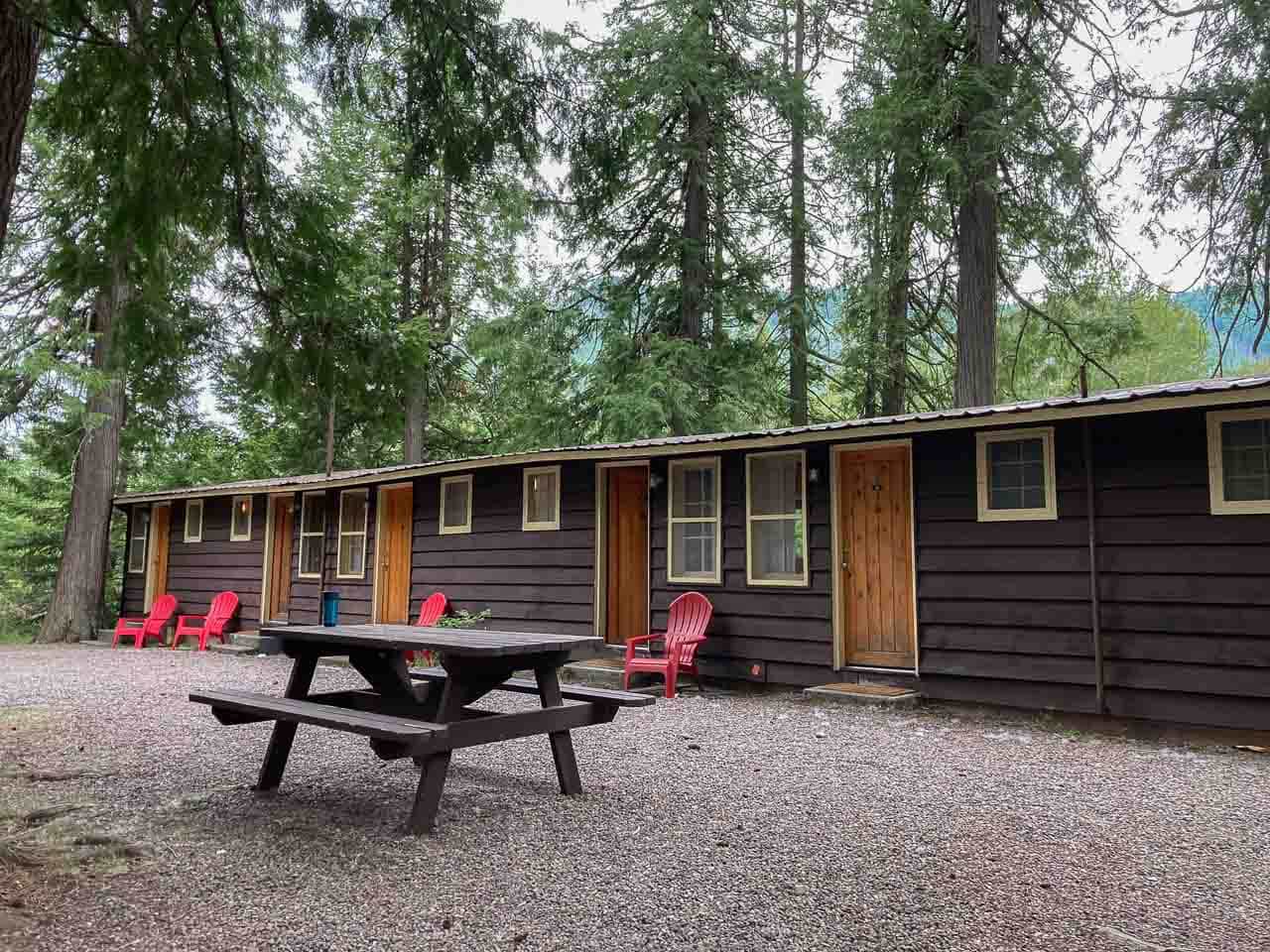
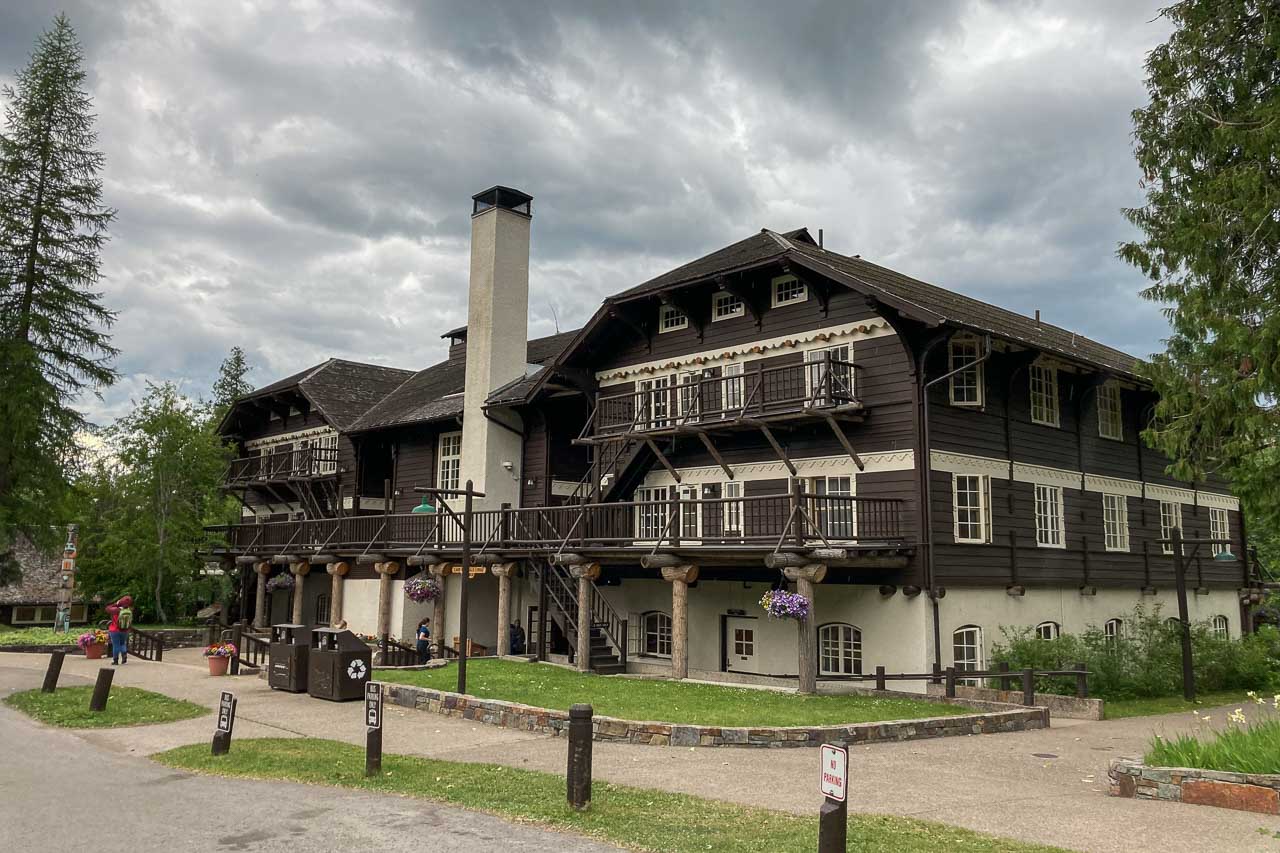
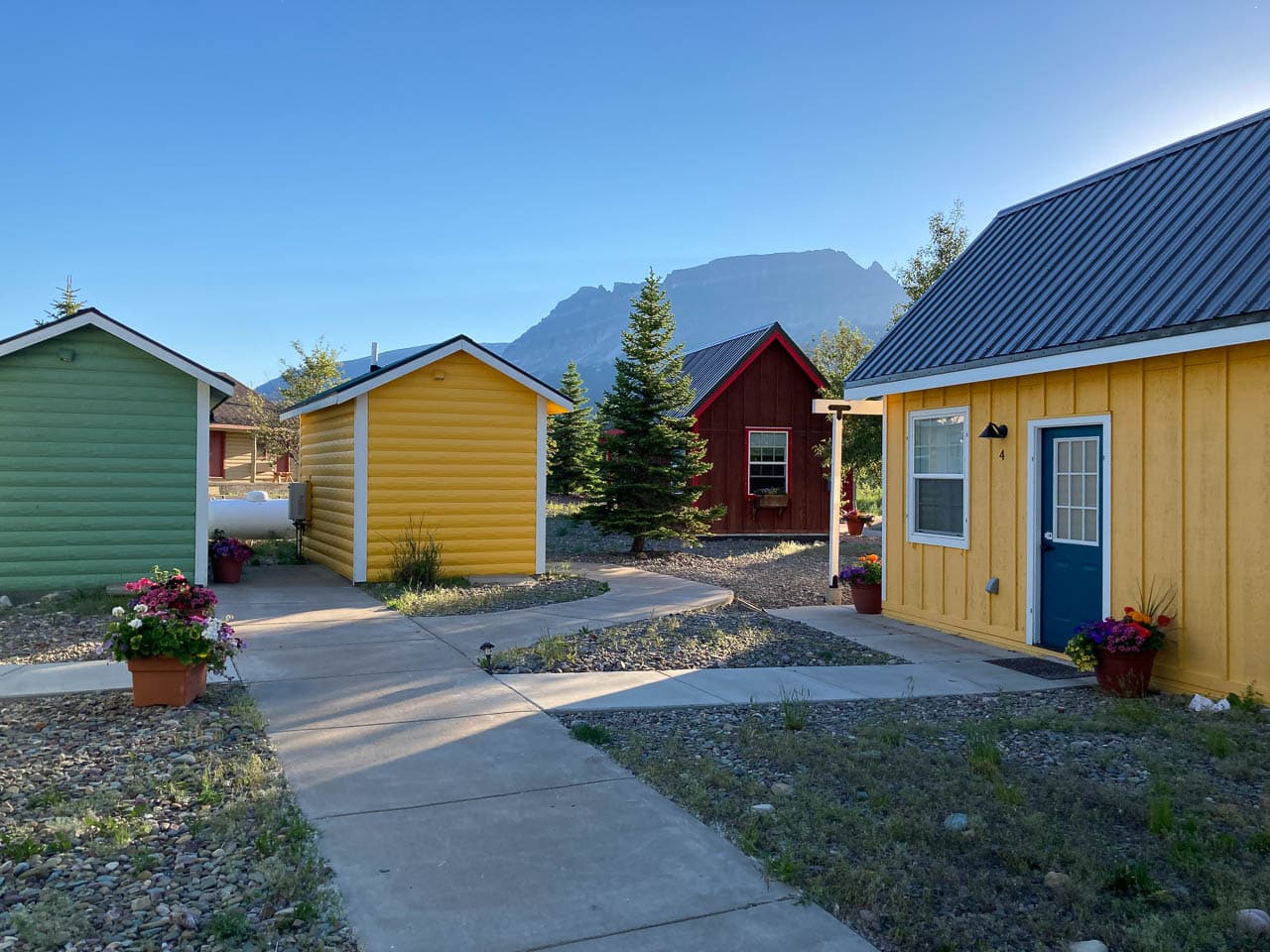
Are There Any Size Restrictions for Vehicles?
Yes, there are. Because of sharp turns, low rock overhangs and some very narrow sections, there are vehicle size restrictions in place.
Between Avalanche Campground in the west and Rising Sun in the east, vehicles and vehicle combinations longer than 21 feet and wider than 8 feet are prohibited on the Going-to-the-Sun Road.
It’s also important to know that a vehicle (combination) over 10 feet high, although allowed, could have trouble between The Loop and Logan Pass.
Do You Need a Reservation to Drive the Going-to-the-Sun Road?
Yes, you do… sort of. Just like previous years, Glacier National Park uses a ticketed entry system for the Going-to-the-Sun Road in 2023, too.
From May 26 through September 10, 2023, between 6 am and 3 pm, you will need an entry reservation ticket to access the Going-to-the-Sun Road via the West Entrance near Lake McDonald.
If you’d like to continue driving the Going-to-the-Sun Road past Rising Sun from the St. Mary Entrance, on the other hand, you will need a vehicle reservation from July 1 through September 30, 2023, between 6 am and 3 pm.
However, if you have a service reservation, such as a hotel or campsite booking, bus tour, boat ride or horseback ride reservation, you do not need a Going-to-the-Sun Road ticket.
You can also access Glacier’s famous mountain road outside of the ticketed hours and dates.
You can find more information about the Going-to-the-Sun Road ticket system here.
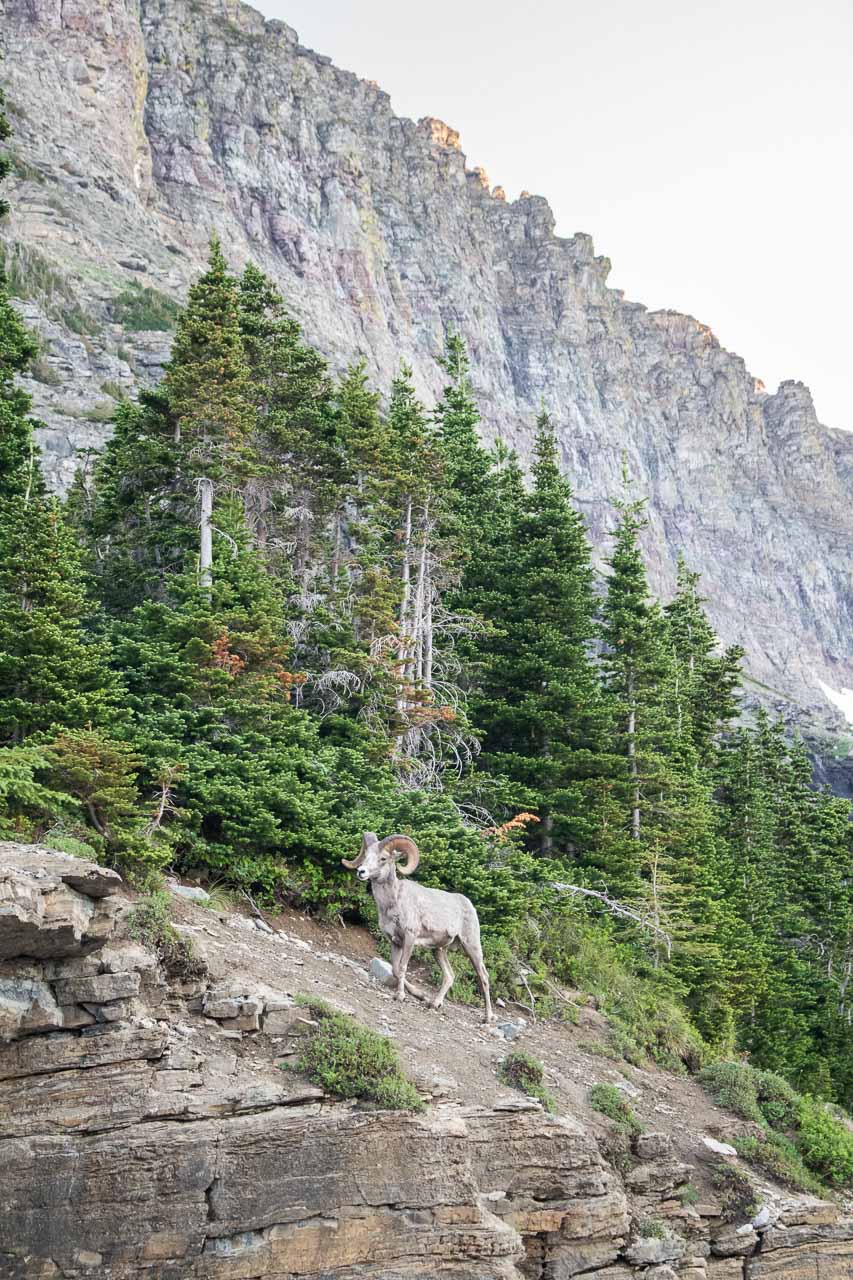
What Wildlife Can You See Along the Going-to-the-Sun Road?
The Going-to-the-Sun Road runs straight to prime wildlife habitat. From the dense woodlands of the west, across alpine Logan Pass, to the forests and meadows of the east, the entire road offers excellent Glacier National Park wildlife viewing opportunities.
Seeing wildlife is a major highlight and you might even see some from the panoramic Going-to-the Sun Road viewpoints below.
These are some of the high-profile animals that I’ve seen on the road:
- Black bears (on the Avalanche Lake Trail)
- Grizzly bears (Logan Pass and between Sunrift Gorge and Sun Point)
- Mountain goats (at and around Logan Pass)
- Bighorn sheep (at and around Logan Pass)
- Elk (at Two Dog Flats)
- Moose (at ponds along the north shore of St. Mary Lake)
Note, though, that those are just the places where I saw wildlife myself. You can run into animals literally anywhere along the road. Pay attention while driving and always stay in your car, especially when observing bears and moose.
For more information about wildlife safety, I recommend reading these blog posts:
- Black bear safety tips
- Grizzly bear safety tips
- Elk safety tips
- Moose safety tips
- Mountain lion safety tips
7 Best Panoramic Views on Going-to-the-Sun Road, Glacier National Park
While there are many more viewpoints along the Going-to-the-Sun Road, I’ve limited my selection of favorites to those than offer panoramic views. From these viewpoints, you can enjoy a vista that at least 180 degrees, sometimes more.
They’re listed from west to east. When driving from the West Entrance to the St. Mary Entrance, this is the exact order you’ll come across these amazing Going-to-the-Sun Road views.
I’ve also included two photos of each panoramic view. The first is a panoramic photo that you can click/tap to enlarge, while the second is a closer view of the landscape.
1. Lake McDonald View
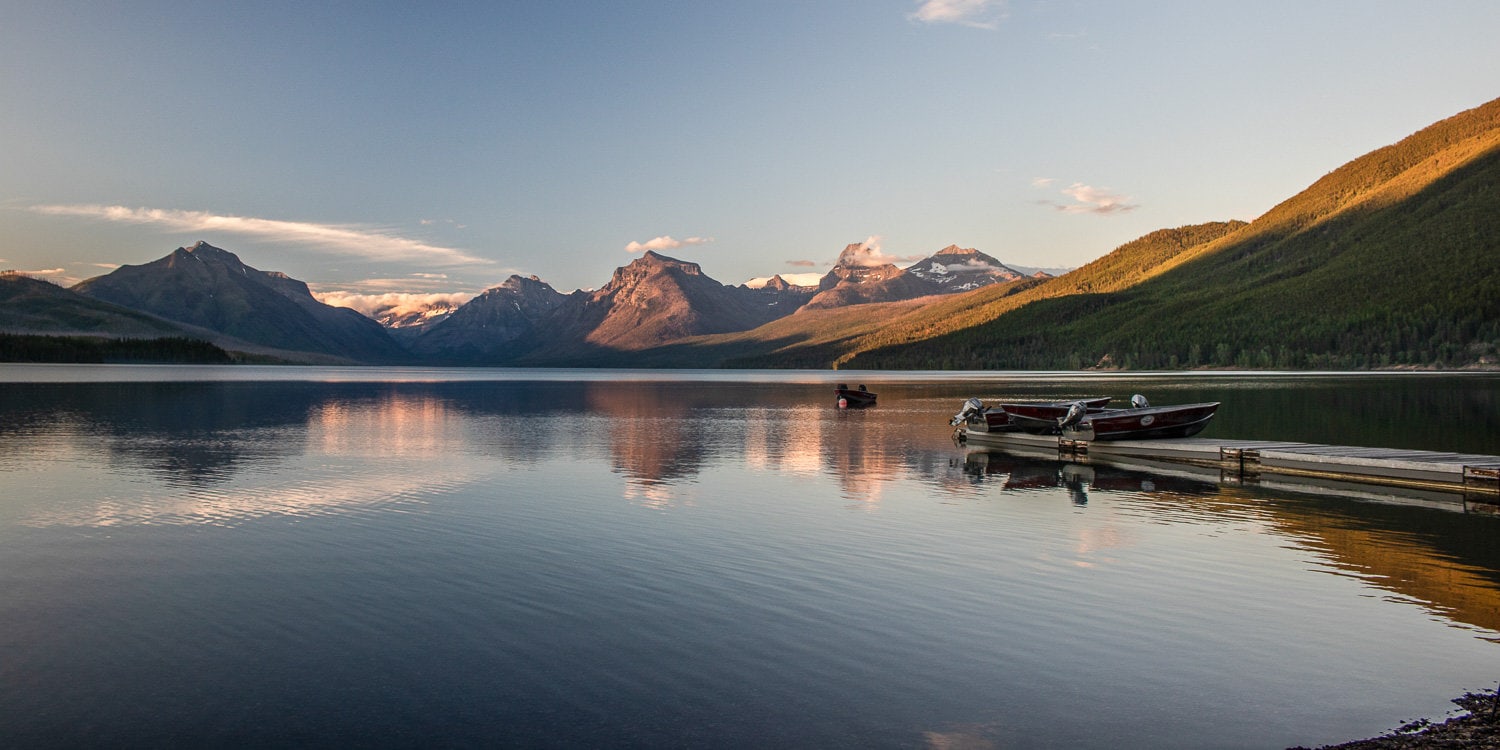
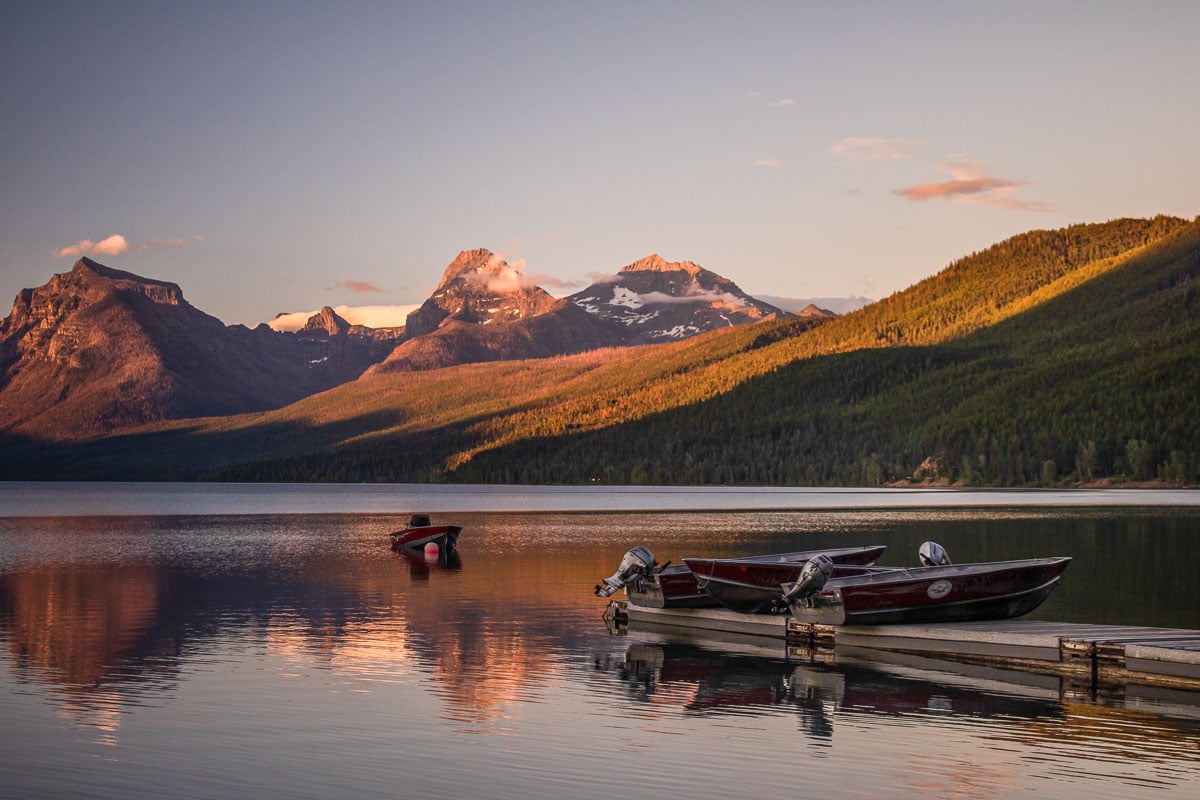
The largest lake in Glacier National Park, Lake McDonald is 10 miles long and almost 500 feet deep. A direct result of glacial carving, the lake is surrounded by tall peaks and the forested slopes of its U-shaped valley.
This is the main hub of the park’s west side, home to the bustling Apgar Village, the iconic Lake McDonald Lodge, and a few campgrounds. Lake McDonald is also one of the best places to see the sunset in Glacier National Park.
From Apgar on its southwestern shore, you can enjoy fantastic panoramic views of the majestic peaks at the far end of the lake, lit up by the evening sun.
Additionally, Lake McDonald is famous for its colorful pebbles and crystal-clear, often reflective, water.
The kaleidoscopic submerged rocks, backed by a perfect reflection of the mountains in the water, is one of the most iconic views on Going-to-the-Sun Road.
This is also the only lake along the Going-to-the-Sun Road where you can go boating, kayaking and canoeing. (Boating on St. Mary Lake is currently not allowed.)
2. Big Bend View
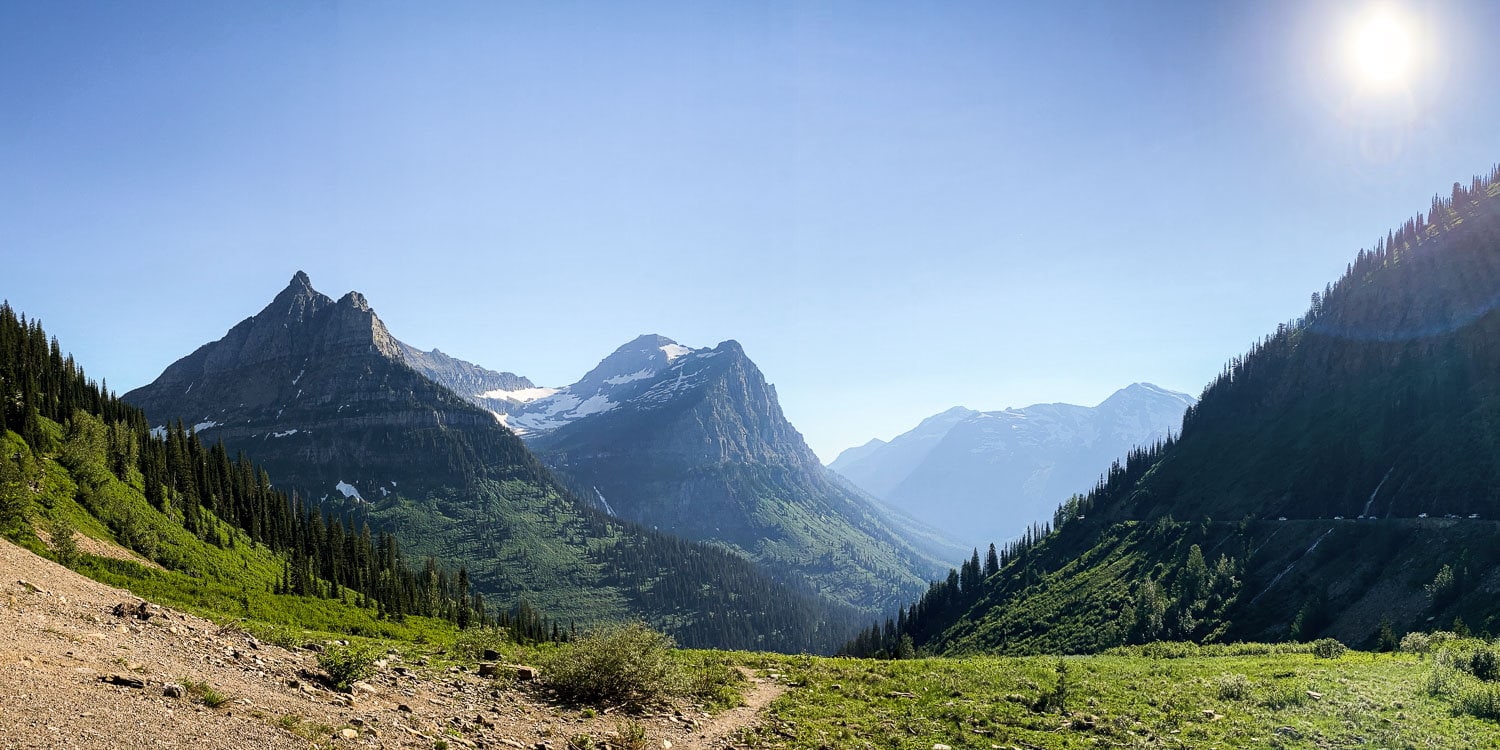
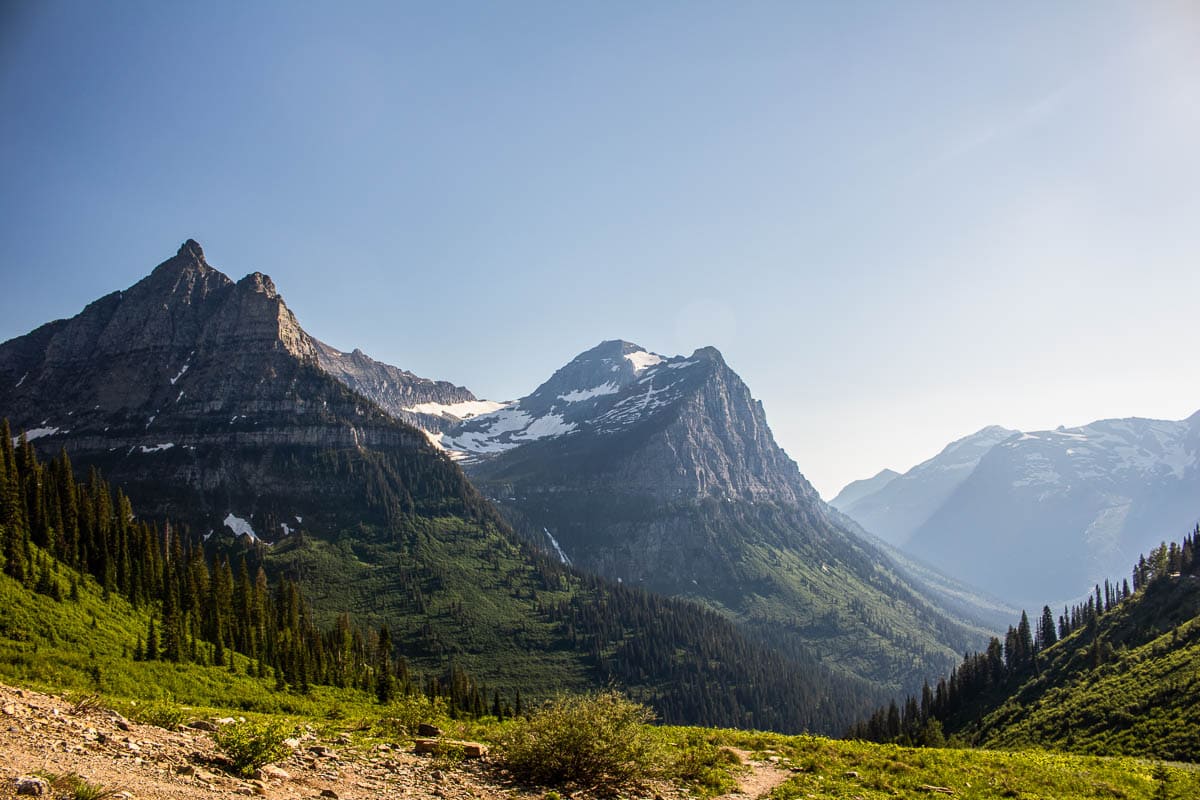
One of the best spots to enjoy the sunset on the Going-to-the-Sun Road, Big Bend is, well, a big bend in the road.
When coming from the west, it’s just past the Weeping Wall. A large parking lot makes it impossible to miss and indicates its popularity among visitors. You definitely won’t be alone here.
Take your time at Big Bend—this Going-to-the-Sun Road panorama is truly breathtaking—and watch the sun rays, shadows, and colors shift along the cliffs and peaks across the valley.
The view includes Mount Oberlin, Cannon Mountain, Heavens Peak and Clements Mountain.
If you’re at this amazing spot in mid-summer, you’ll also be treated to a magnificent display of wildflowers.
3. Oberlin Bend Overlook View
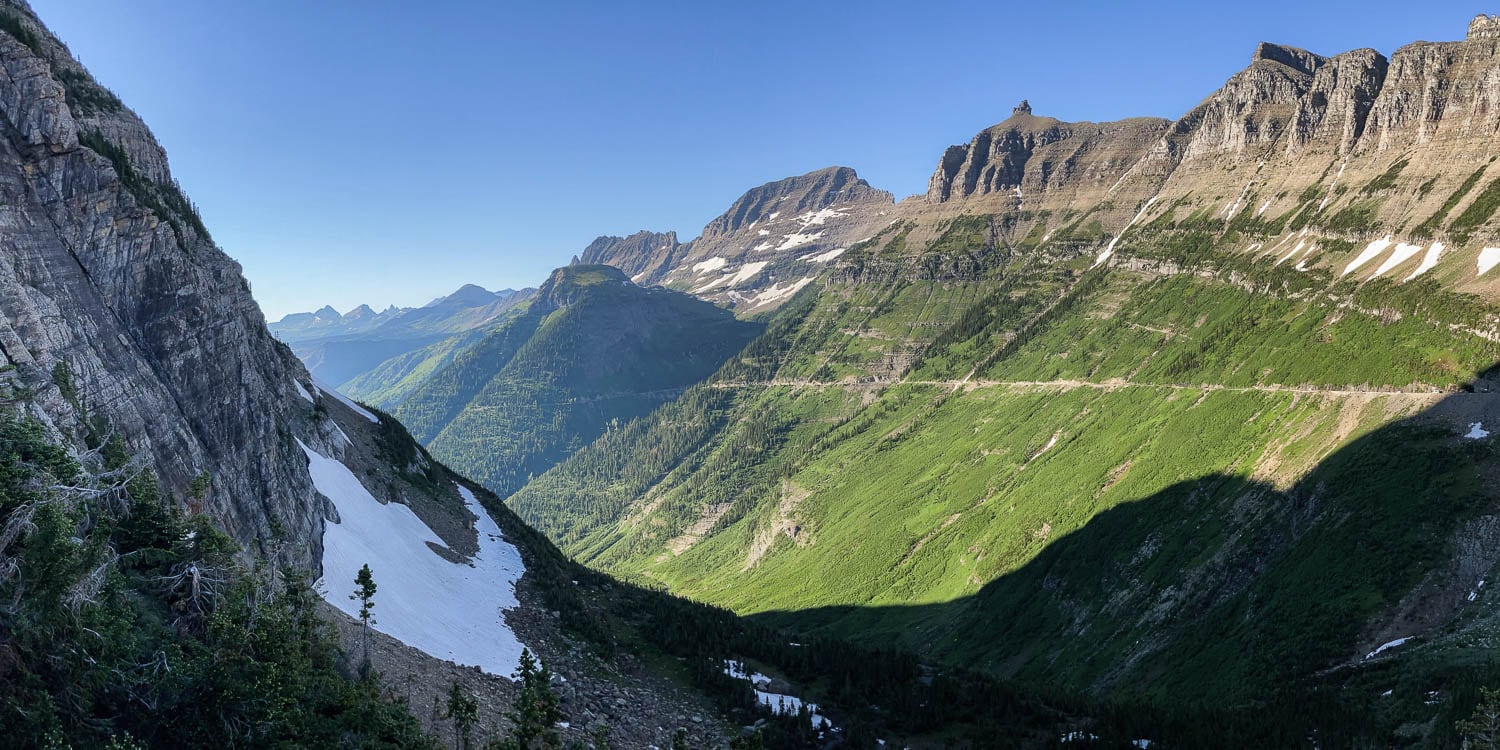
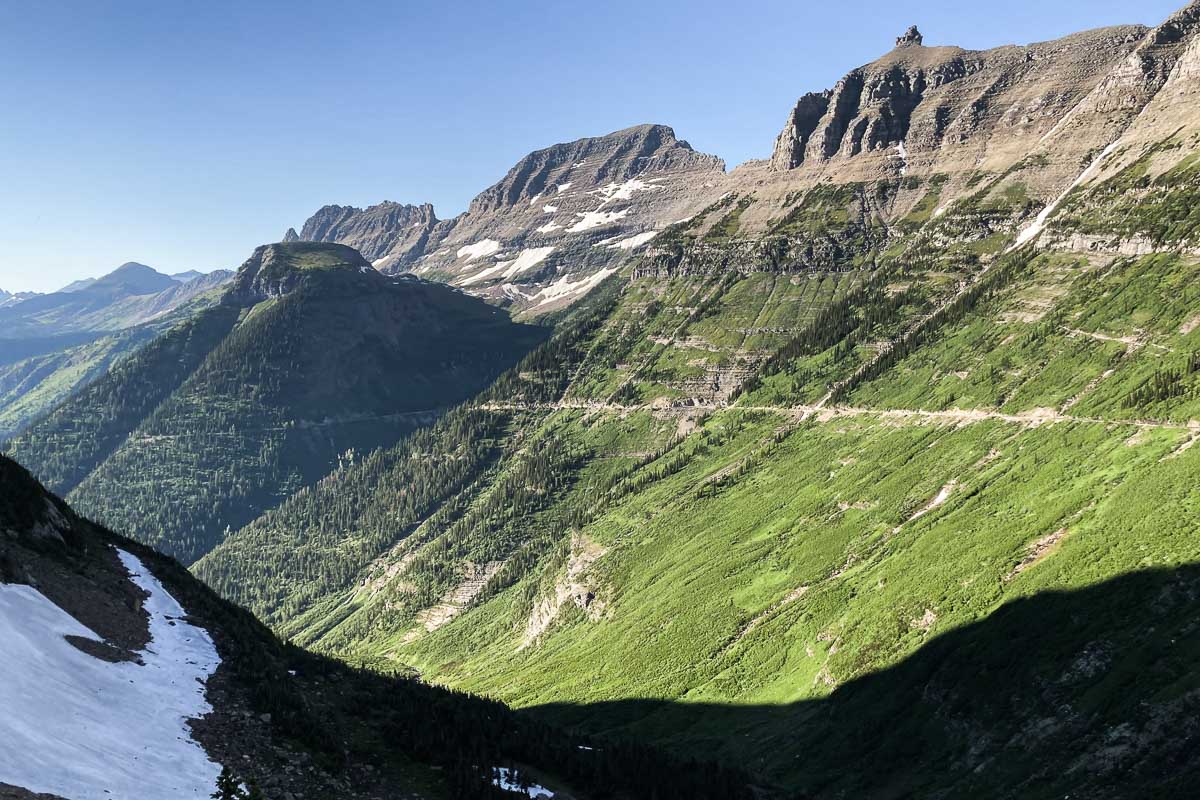
The Oberlin Bend Overlook is at a wide curve in the road just before Logan Pass and below Mount Oberlin. From the parking lot, there’s a short wheelchair-accessible path to the overlook.
Keep your eyes peeled for mountain goats, the official mascot of Glacier National Park, which abound in this area and are often seen on the cliffs above.
The Oberlin Bend Overlook offers spectacular views of the Going-to-the-Sun Road’s final stretch toward Logan Pass, as well as the Highline Trail and the Continental Divide.
4. Logan Pass View
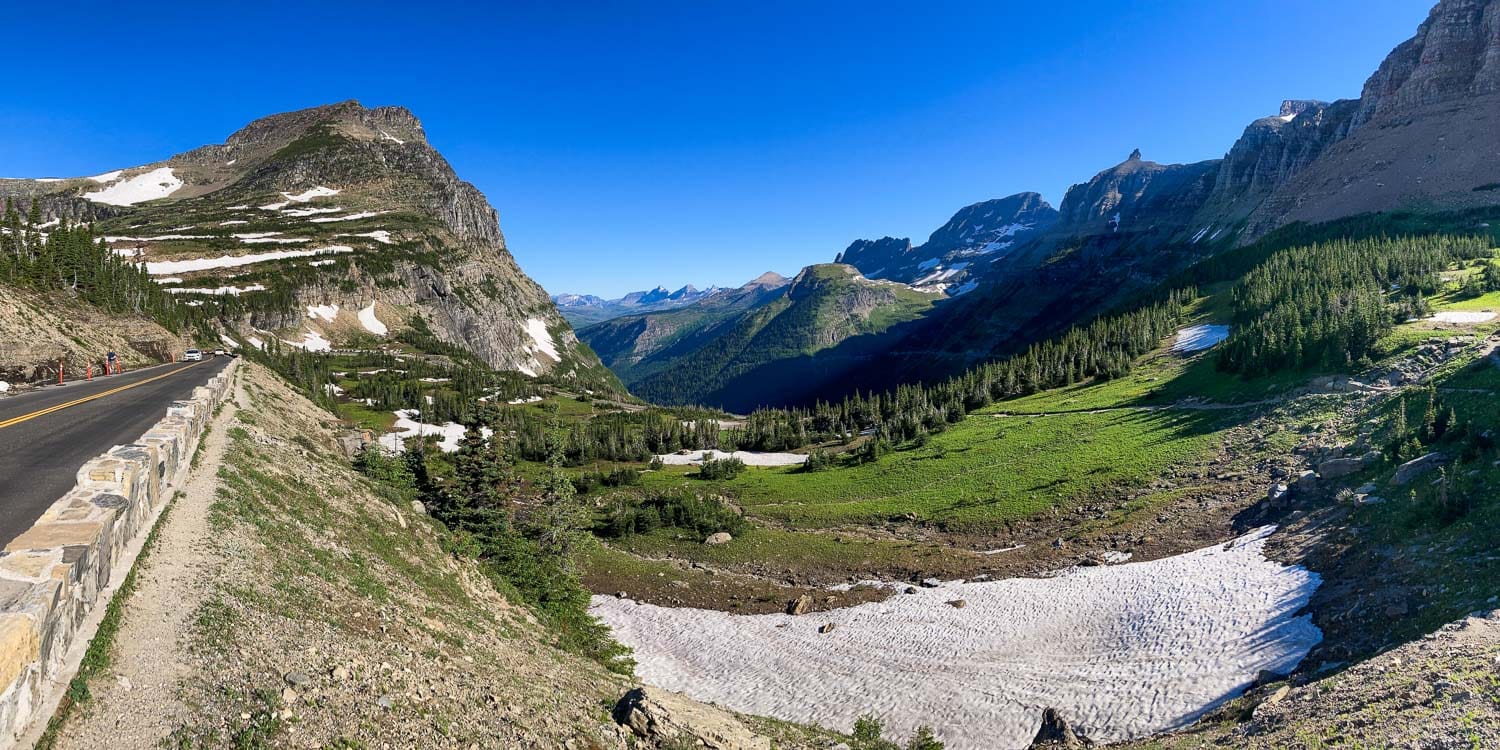
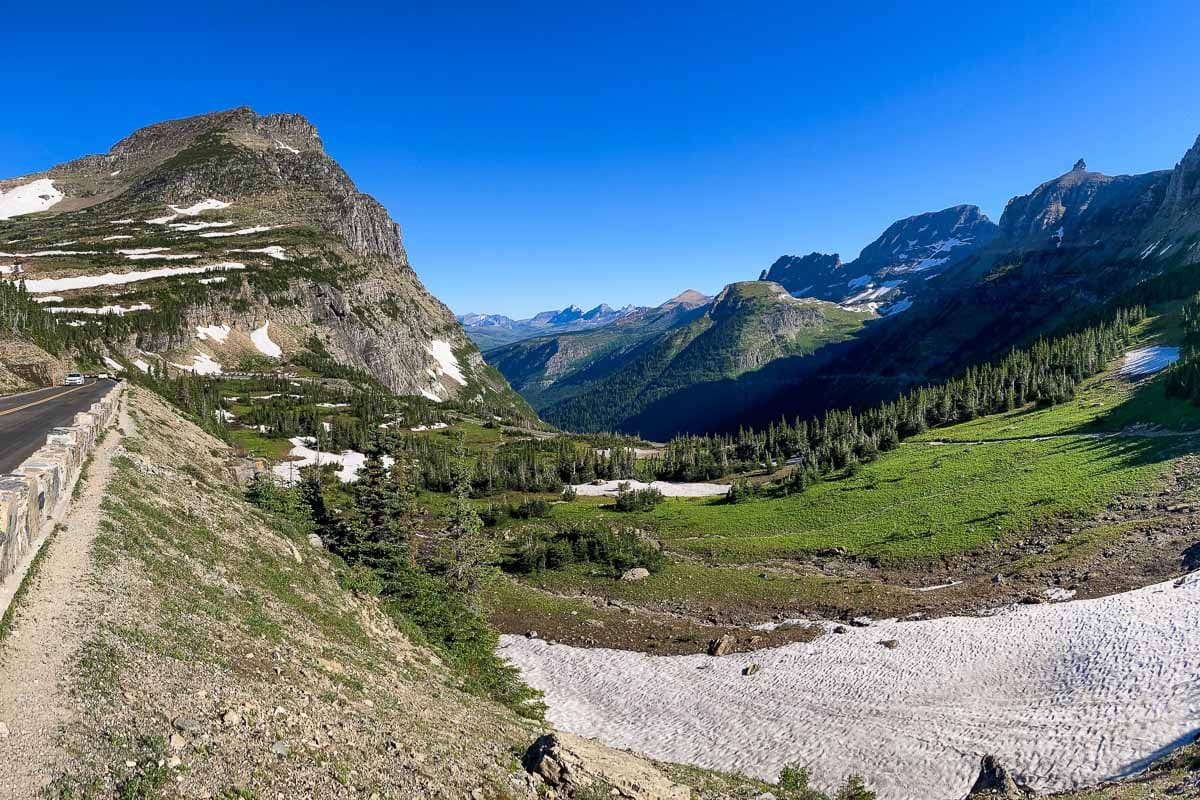
The ultimate destination for many visitors to Glacier, Logan Pass is the highest point on the Going-to-the-Sun Road at 6,646 feet.
When the road is open, usually from late-June through mid-October, this is an extremely busy place. In mid-summer, the parking lot is typically full between 8 am and 4.30 pm. Get here as early in the morning as you can.
Once you’ve found a parking spot, you can stroll the interpretive trail at the Logan Pass Visitor Center or just take in the superb panorama views from the parking lot itself.
Additionally, this is also the starting point for hikes to the iconic Hidden Lake Overlook (see below) or on the world-renowned Highline Trail.
Besides stunning summer wildflowers and wonderful sunrise and sunset views along the Going-to-the-Sun Road, Logan Pass is also one of the top locations for wildlife viewing in Glacier National Park.
At Logan Pass, you’ll almost certainly see bighorn sheep, while mountain goats are very common as well. If you’re patient (and lucky), you might spot a grizzly bear lumbering through the meadows, too.
The epic Going-to-the-Sun Road views, combined with wildflowers, wildlife, and hikes, make Logan Pass one of the absolute highlights of this scenic road.
5. Hidden Lake Overlook View
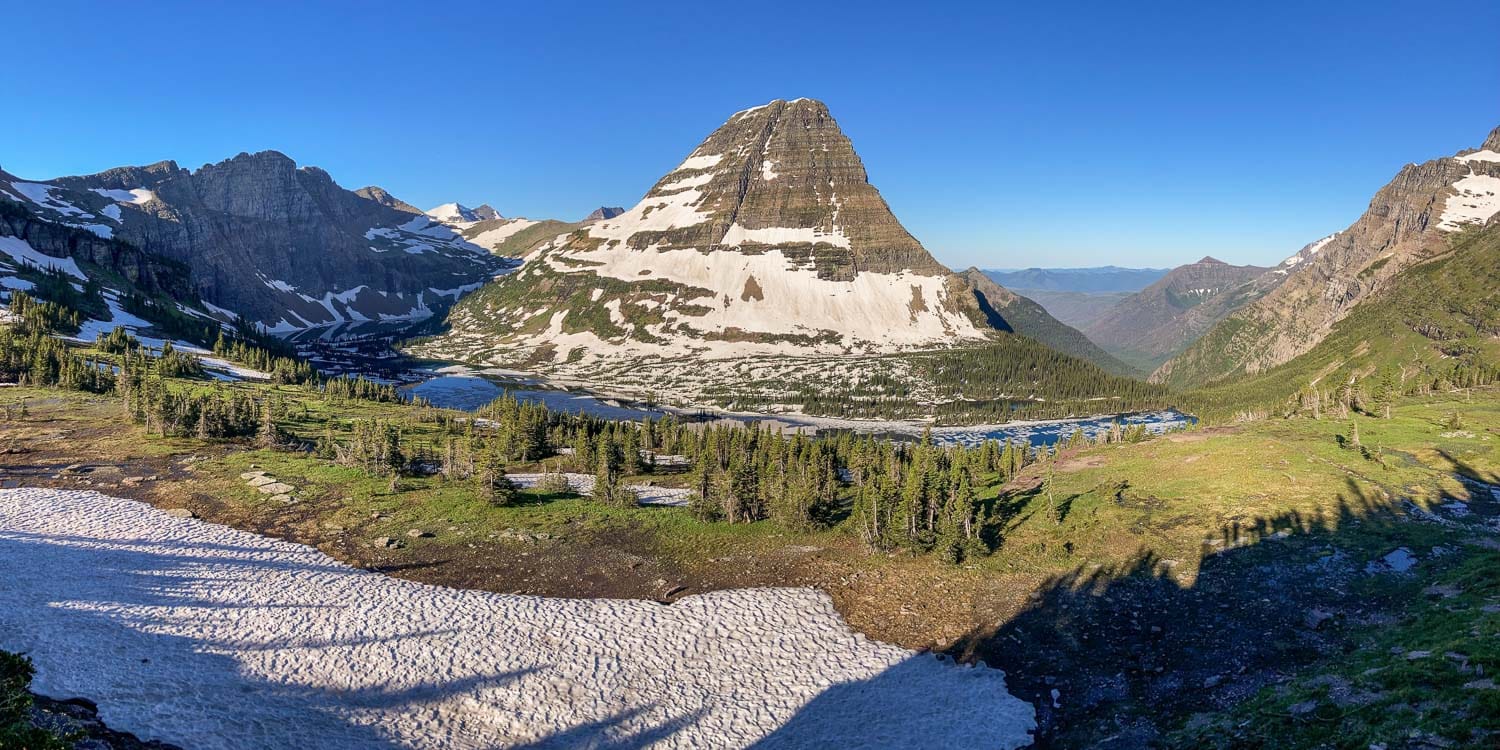

The Hidden Lake Overlook is also at Logan Pass, but worth zooming in on. This is one of my favorite shorter hikes in Glacier National Park, a stunning walk across colorful alpine meadows to one of Glacier’s most famous viewpoints.
The trail starts just behind the Logan Pass Visitor Center and combines boardwalks, to protect the fragile flowers underneath, and gravel.
It is absolutely glorious at sunrise, when crowds are at their smallest and animals at their most active.
As the trail climbs to the Hidden Lake Overlook, you can enjoy panoramic views of Logan Pass and see ancient rock layers in the cliffs of Clements Mountain to your right.
The upper section of the trail features small waterfalls and reflective moraines, as well as excellent opportunities to see mountain goats and bighorn sheep.
From the platform at Hidden Lake Overlook, one of the iconic views in Glacier National Park sprawls before you: Hidden Lake backed by striking Bearhat Mountain. It’s a fairly easy 2.8-mile roundtrip hike.
6. East Tunnel Pullouts View
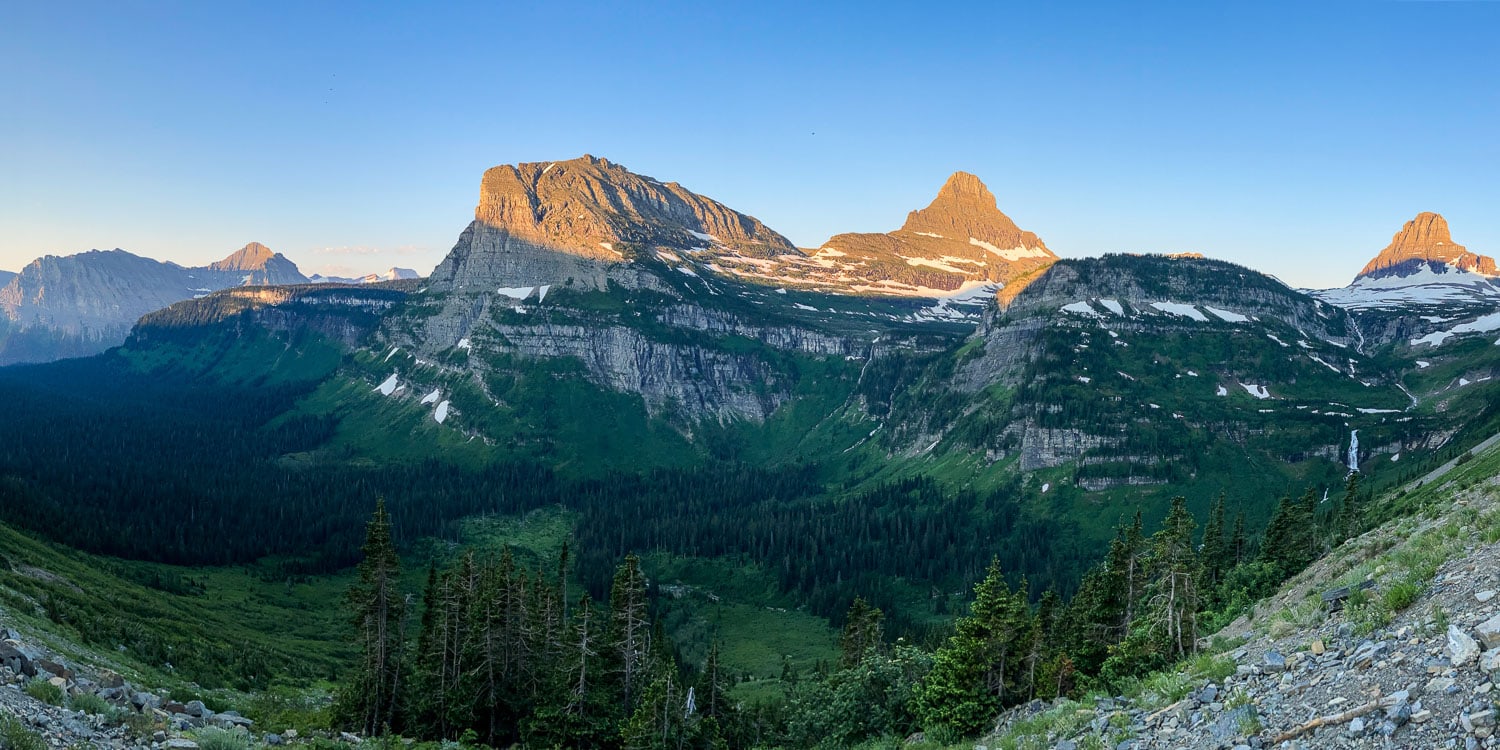
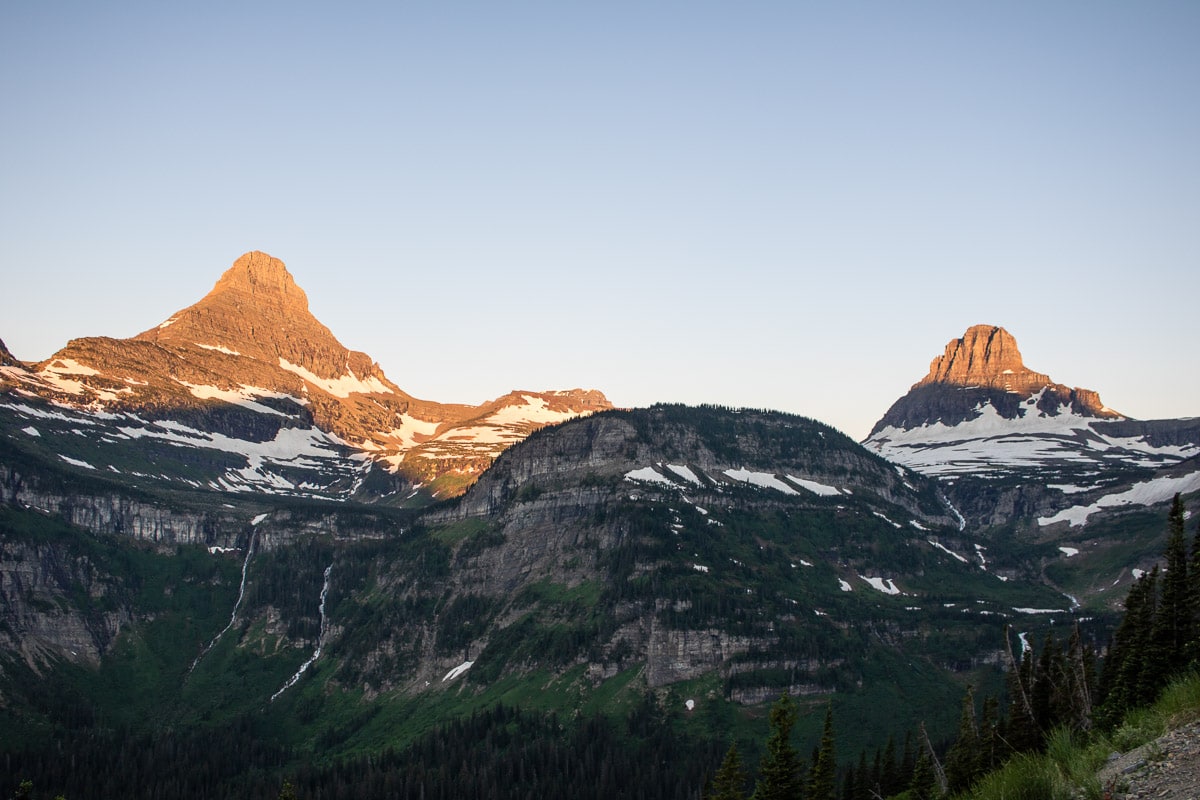
While literally all roadside pullouts and overlooks on the Going-to-the-Sun Road are worth stopping at, I personally love those below the East Tunnel most. Situated just east from Logan Pass, the East Tunnel is the larger of the road’s two tunnels.
This 408-feet-long tunnel was excavated entirely by hand, an impressive man-made feature in a landscape dominated by majestic peaks and deep valleys.
The pullouts are on the downhill side of the tunnel and offer great views of the East Tunnel itself, as well as Going-to-the-Sun Mountain, after which the road was named.
Looking up toward Logan Pass, this sensational Going-to-the-Sun Road panorama takes in Reynolds Mountain and Clements Mountain. I consider this one of the best views in the national parks.
7. Wild Goose Island Overlook View
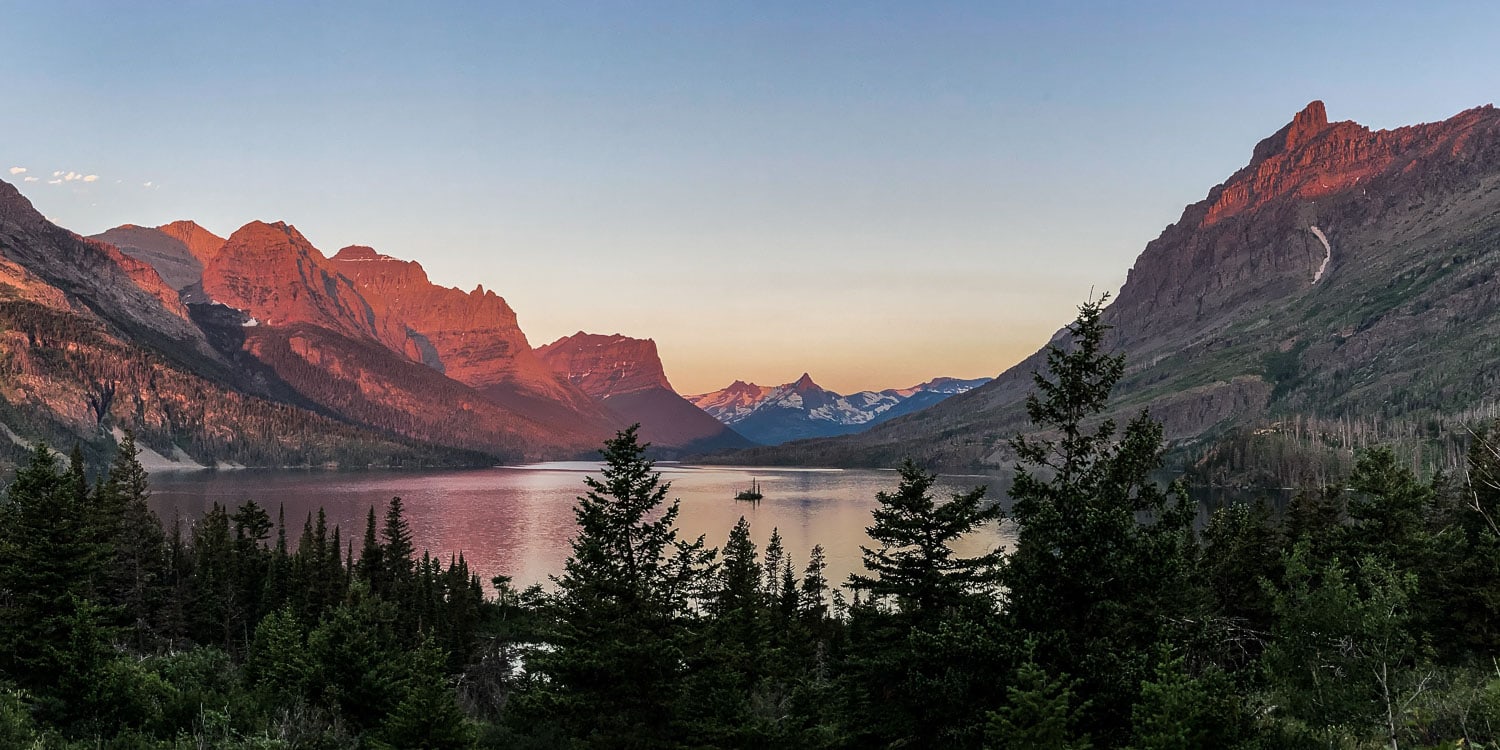
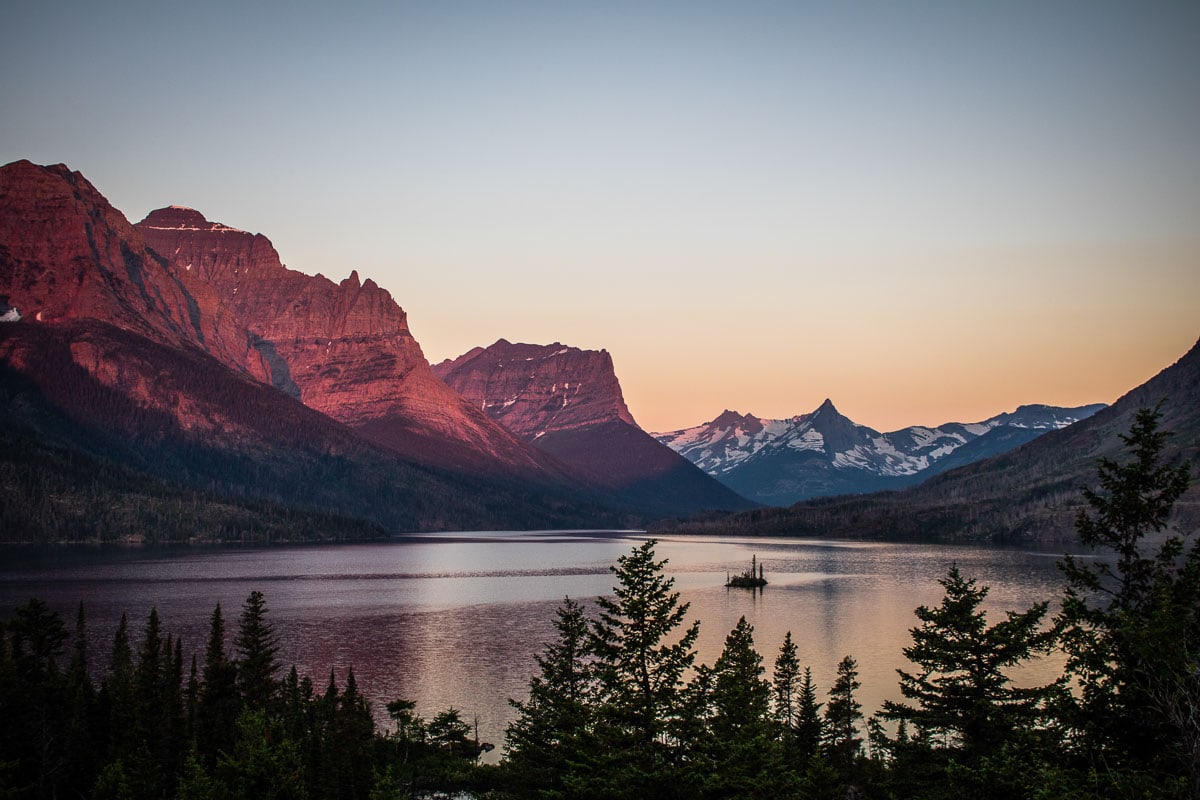
A bucket-list photography location and viewpoint on the Going-to-the-Sun Road, little Wild Goose Island is one of Glacier’s most photographed spots.
Seen from the overlook, tall trees form a beautiful frame for this little islet in the massive body of water that is St. Mary Lake, while the Continental Divide provides a spectacular backdrop.
At the center of the backdrop, Fusillade Mountain somewhat mirrors the shape and trees of Wild Goose Island, a perfect detail that makes this spot even more special.
Because the Wild Goose Island Overlook faces west, it’s also one of the best panoramic views on the Going-to-the-Sun Road to enjoy the sunrise.
Map of the Best Panoramic Views on Going-to-the-Sun Road
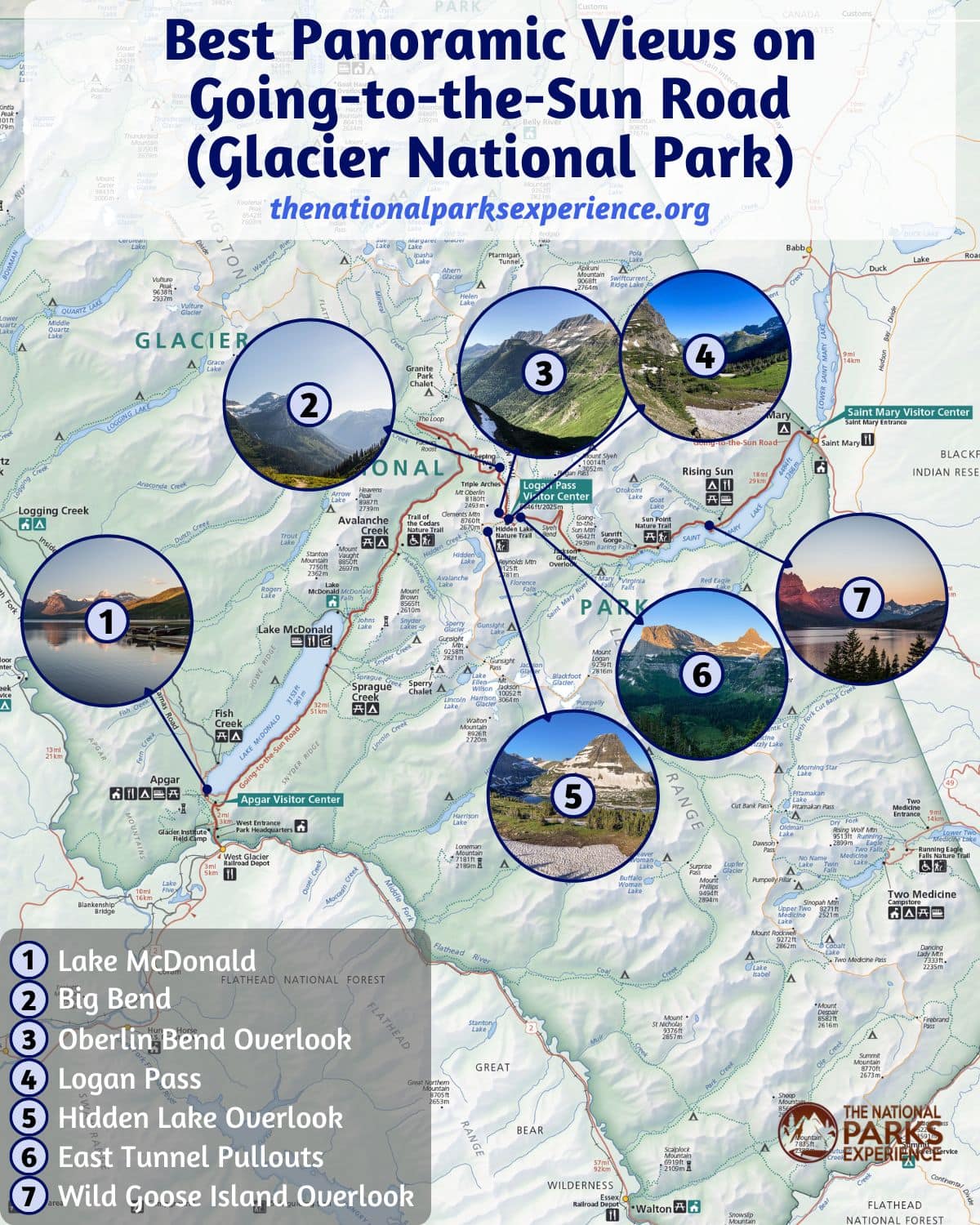
More About Glacier National Park
- Park Website
- Travel Guide
- Topographic Map
- Best Glacier National Park Hikes
- Top Attractions on the Going-to-the-Sun Road
- Best Things to Do at Many Glacier
- Best Things to Do at Lake McDonald
- Where to See Wildlife in Glacier National Park
- Accommodation


